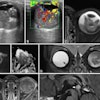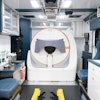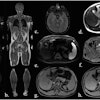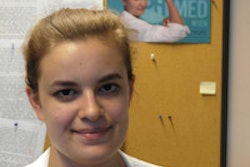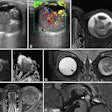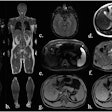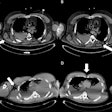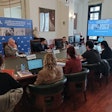
The dire circumstances driving Hungary's brain drain of experienced specialist doctors -- typified by poor recognition, long hours, and low wages -- are only deteriorating, and it's tough to be optimistic about the future, according to a top radiologist from Budapest.
In July, AuntMinnieEurope.com spoke to Dr. Gábor Forrai, PhD, who heads Hungary's biggest radiology department, based in Budapest's ÁEK military hospital. He painted a grim picture of an undervalued, underfinanced health service in an economically challenged country. Unfortunately, since then the situation has only gotten worse, he says now.
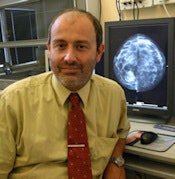 The domestic situation facing Hungarian radiologists has worsened over the past year, according to Dr. Gábor Forrai, PhD.
The domestic situation facing Hungarian radiologists has worsened over the past year, according to Dr. Gábor Forrai, PhD.
Forrai knows of department heads who buy office equipment for their secretaries out of their own pockets because their hospitals cannot afford it. The average take home medical salary in Germany is around 4,000 euros per month; in Hungary it is 400 euros. According to respected news portal Index.hu, the average monthly salary across all professions in Hungary before tax is 228,000 Hungarian forints, or about 770 euros. "Doctors in Hungary do not even earn the average monthly income," Forrai noted.
Given that, it is little wonder doctors struggle. Those with closest access to patients, such as general practitioners and gynecologists, benefit from a gratuity system where people give a tip for their healthcare. Others will hold down another two or three jobs, inside medicine or out.
Forrai says a senior colleague recently told him it is only emotion that keeps people working in Hungary and there is no rational argument for staying. Indeed, increasing numbers are looking for work abroad. News source Origo.hu, estimated there are now fewer than 28,000 doctors in Hungary, which has a population of nearly 10 million. In 2009, some 887 asked for the paperwork necessary to work abroad. By the following year, that number rose to 1,100, and last year it was 1,200. Of those, 550 were specialists, including 200 from professions already facing grave shortages, such as anesthesiology (45), radiology (23), and pathology (20).
Although doctors have recently been promised more money by the Hungarian government, there is no indication of how it will be financed; the source the government identified, the so-called "chips tax" on unhealthy foods, has already been promised elsewhere. It is little wonder that radiologists like Dr. Miklós Barta have moved overseas.
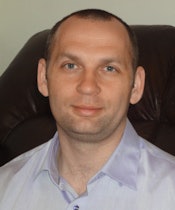 Dr. Miklós Barta, a Hungarian radiologist, moved overseas to find work.
Dr. Miklós Barta, a Hungarian radiologist, moved overseas to find work.
"When we first decided to go abroad, we had no kids, Hungary had just joined the EU, and our qualifications were accepted," he recalled. "Obviously financial reasons were strong and there is no point denying it. But we also wanted to test ourselves under different circumstances, test our knowledge, our ability to adapt to and experience another culture. We were also looking for a healthier work-life balance. We planned to go for a year and stayed for three and a half. We really enjoyed it."
Hungarians are particularly drawn to their homeland. Barta, now 38 and with two children, says he and his wife wanted to take their knowledge back home, and to raise their kids there, and so returned to Hungary. The differences in the working environment, salaries, and rhythm of life were so striking they couldn't really settle in Hungary, and they have since moved back to the U.K.
This is a common theme, according to Forrai. Returning colleagues can't readjust to medical life back in Hungary; they either go back abroad for a full-time job or for regular locum trips. "I don't know a single radiologist who has come back and stayed a doctor here for more than a year or two," he commented.
A couple of agencies helped secure Barta his first job after which, with U.K. experience under his belt, it became easier to find work. "I started as a locum consultant in 2005, and then became a permanent consultant in 2006. Recently we moved again and since October 2011, I work as a National Health Service locum breast specialist radiologist consultant and will apply for a permanent post in southwest England."
He said he has been made to feel very welcome. "I got a lot of support and was encouraged to deepen my professional knowledge; I completed my specialist training in breast radiology in the U.K. I was also involved in writing business cases, launching new services, taking part in regional planning. I have never felt any discrimination and have always been treated as an equal."
